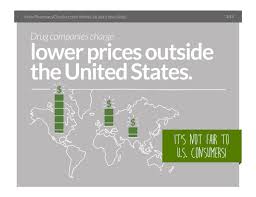by Gabriel Levitt, President, PharmacyChecker.com and Prescription Justice | Feb 6, 2019 | Internet Censorship
According to a new study published by the American Enterprise Institute, the search engine Bing, which is owned by Microsoft, has added pop-up warnings to search results that increase the chances that web searchers will click to rogue online pharmacies. As the reports shows, Bing’s action appears to purposefully thwart safe personal importation of more affordable medicines. It is one of the clearest examples of censorship resulting from “voluntary agreements” among Internet companies, “encouraged” by regulators, that will threaten the health of patients buying medicine online under the guise of protecting them. Bing has placed warnings on its organic search results of Canadian-based and other international online pharmacies, yet the search engine fails to do so for many rogue websites, ones proven to sell counterfeit drugs. Here’s how that happened.
The problem is Bing’s use of the National Association of Boards of Pharmacy’s (NABP) Not Recommended List (NRL). Many of the NABP’s programs involving online sales of medicines and educating the public about online pharmacies are funded by drug companies, and therefore supportive of the industry’s profit-protecting goals against importation.
Bing’s Backwards Partnership with the NABP
(more…)Tagged with: AEI, Bing, Carmen Catizone, Google, NABP
by Gabriel Levitt, President, PharmacyChecker.com and Prescription Justice | Dec 7, 2017 | Drug Importation
 For years, the National Association of Boards of Pharmacy (NABP) has opposed new drug importation proposals that would improve access to more affordable medication from Canada and other countries. Led by its executive director, Carmen Catizone, PharmD, the NABP’s efforts pertaining to drug importation have focused mostly on opposing online access to imported medications – meaning Americans getting cheaper meds from Canada and other countries. This is not surprising. NABP has received a lot of money from pharmaceutical companies for these efforts. Also, NABP represents U.S. pharmacy boards and the members of those boards often have financial interests in U.S. pharmacies. But here’s a surprise…
For years, the National Association of Boards of Pharmacy (NABP) has opposed new drug importation proposals that would improve access to more affordable medication from Canada and other countries. Led by its executive director, Carmen Catizone, PharmD, the NABP’s efforts pertaining to drug importation have focused mostly on opposing online access to imported medications – meaning Americans getting cheaper meds from Canada and other countries. This is not surprising. NABP has received a lot of money from pharmaceutical companies for these efforts. Also, NABP represents U.S. pharmacy boards and the members of those boards often have financial interests in U.S. pharmacies. But here’s a surprise…
Earlier this week, an article in the Washington Post focused on various prescription drug importation programs offered by cities, counties and schools to lower pharmaceutical bills for retirees and municipalities. According to the article, the FDA may view these programs as illegal. The FDA recently raided some pharmacy storefronts in Florida but did not shut them down. Operating for 10, some even 15 years, those programs help Americans—especially the elderly— order affordable medications from other countries.
Mr. Catizone had the last word in the article. (more…)
Tagged with: Carmen Catizone, drug importation program, Flagler, Kokomo, NABP, Schenectady




